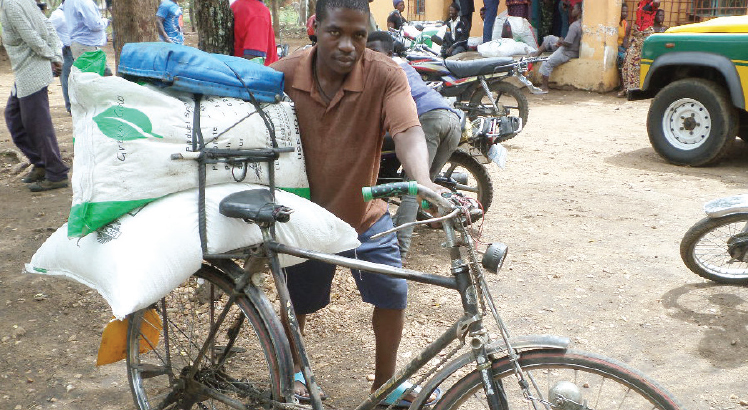Doubts grow over subsidy
There are growing doubts about the government’s capacity to manage a timely and successful Affordable Inputs Programme (AIP) this year, interviews with various stakeholders show.
Parliamentary Committee on Government Assurance and Public Sector Reforms chairperson Noel Lipipa this week said the Ministry of Agriculture needs to find the best approach to implement AIP as people are losing confidence in the programme.

Said Lipipa: “We need to keep improving. We cannot have the same problems year in year out. People are losing trust in the programme. You really mean the ministry cannot find a solution?”
Although President Lazarus Chakwera in February this year promised a timely AIP having ordered procurement processes to be complete by end June and for rollout in July this year, the deadlines have all been missed.
Minister of Agriculture Sam Kawale, who in May announced AIP will be rolled out by September 1 2023, last week conceded that prevailing foreign exchange challenges have derailed the plan.
Whi le Ministry of Agriculture Principal Secretary Dickxie Kampani, who appeared before Lipipa’s committee on Tuesday said the programme could now roll out in October, doubts linger.
Agriculture policy analyst Tamani Nkhono Mvula said poor AIP planning is making it difficult for farmers to bank on the programme at this point.
He said: “The ministry needs to be serious about implementing the programme. Any delays will see inputs getting to farmers late and affecting production. We are not sure if this is the truth or they are just buying time.”
Nkhono Mvula said the beneficiaries should by this time have been transparently identified and notified, but this has not happened.
Farmers Union of Malawi president Mannes Nkhata also expressed concern over the delays, saying some farming households are already under stress due to rising prices of fertilisers.
“Malawi has about three million smallholder farmers. Considering that most farmers received fertiliser late in the 2022/2023 season which affected maize yields for most farmers, the farmers that will be left out from AIP this year will not be able to buy fertiliser at commercial price as most of them are poor and food insecure,” she said.
This week, Ministry of Agriculture AIP coordinator Justin Kagona said about 68 756.05 metric tonnes (MT) of fertiliser is available against a requirement of 149 164 MT.
But Kampani insisted that the programme is on track and would roll out in October.
“We expect distribution to start from October to December. Three months is enough to get fertilisers to the farmers.
“This time we are hoping that we will not have as much pressure as we had last year in terms of delivery of farm inputs,” he said.
Kampani further said the ministry will use mobile markets to expedite the distribution and redemption process to farmers. He estimated that between 1.3 million and 1.5 million households will benefit from AIP this year.
But he admitted that securing forex for fertiliser purchases has been a big setback this year; hence, the delay to roll out the programme.
“All the suppliers signed their contracts, but there are conditions that they need to have forex to bring in more fertiliser so that they can supply,” said Kampani.
Speaking in an interview yesterday, Senior Chief Kameme of Chitipa called on government to ensure that the inputs reach farmers in good time, adding farmers have already started preparing their gardens.
He said with the hunger situation in the country, has led people to bank their hopes on AIP.
Senior Chief Chikumbu in Mulanje District also said a number of households are food insecure and any delays in implementing the programme will worsen the hunger situation.
Senior chief Chilowamatambe of Kasungu said the inputs need to be distributed in good time so that farmers can plant with the first rains.
On his part, Senior Chief Mabilabo of Mzimba also said there is need to expedite distribution of the inputs, especially in the hard to reach areas.





